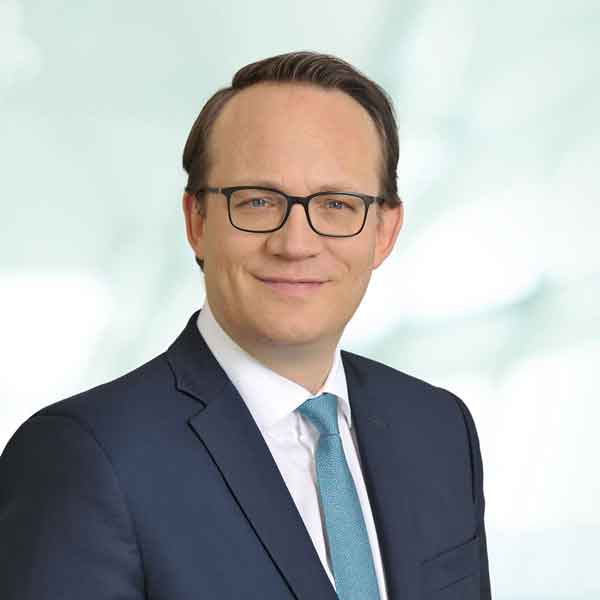Solar power for Rhenish region – RWE builds new photovoltaic plant in opencast mine
11.04.2025

“Nowhere else in Germany is the challenge to reconcile industry and climate protection bigger than in North Rhine-Westphalia. And this is also true for the resulting opportunities. In North Rhine-Westphalia, we can drive a new industrial revolution that will open up new prospects for the state as well as industry. This does require key decisions to be made at state-level now, in order to accelerate the expansion of renewables, flexible backup capacities and hydrogen. We support this and are focusing particularly on North Rhine-Westphalia in our investment and growth strategy. By 2030, we want to invest around 4 billion euros gross in the state.”
As part of its global investment and growth strategy, RWE intends to significantly expand its core green business by 2030. In Germany alone, the company plans to invest around 15 billion euros gross in offshore and onshore wind, solar, batteries, flexible backup capacities and hydrogen. For North Rhine-Westphalia this means: 1,000 MW of renewables, 2,000 MW flexible and hydrogen-compatible backup capacities, 700 MW electrolyser capacity for green hydrogen, active support for structural change during the next eight years: RWE wants to support the transformation of the industrial state of North Rhine Westphalia with a comprehensive bundle of measures. The details were presented today, by Prof Andreas Pinkwart, Minister of Economic Affairs in North Rhine-Westphalia and Dr Markus Krebber, CEO of RWE AG. The minister explained: ”North Rhine-Westphalia is a strong industrial state and we want to remain this. That is why we are working on accelerating the expansion of renewable energies, gas and hydrogen power plants in order to enable a climate-friendly restructuring of our economy and society. That is why I am grateful that RWE intends to invest in the expansion of renewable energies on a large scale in our state, and especially in the Rhenish lignite area by 2030. North Rhine-Westphalia needs strong partners, so that the climate-friendly conversion of the industrial base will succeed. Together with many other stakeholders, we can further develop the area into the most modern and climate-friendly zone in Europe.“
And Markus Krebber emphasised: “As part of the industrial heartland of Germany, North Rhine-Westphalia has a special role to play in the transition towards a climate-neutral economy. Politics, companies and society are required to take on responsibility to make this work and, above all, take the opportunities that arise from the transition. We at RWE are putting all our energy into doing just that.”
Renewable energies: wind turbines and ground-mounted PV plants
By 2030, RWE is planning to build renewables projects with a capacity of 1,000 MW in North Rhine-Westphalia, with at least 500 MW to be located in the Rhenish mining district. The company will construct wind farms and ground-mounted photovoltaics plants, some of them in combination with electricity storage facilities. Demonstration plants for floating and agricultural PV are in planning, too. RWE also intends to participate in local and regional decarbonisation concepts through the expansion of renewables. One example is the generation of green hydrogen close to the production facilities and transport companies where it will be used. In order to implement these projects, planning and approval processes must be considerably accelerated and simplified at state as well as regional levels, and more land needs to be allocated accordingly. This must also apply to commercial woodland. In addition, improvements need to be made to the processes for approving repowering work and constructing hybrid PV plants on land that was previously used for opencast mining.
Flexible secured power plant capacities: “H2-ready” gas-fired power plants
RWE also wants to build at least 2,000 MW of gas-fired power plant capacity on its coal-fired power plant sites by 2030. The facilities are to be “H2-ready”, meaning it will be possible to adapt them quickly for fuelling with hydrogen once it becomes available in sufficient volumes. The sites of RWE’s hard coal as well as lignite-fired power plants are already fully connected to the power, water and long-distance gas supply grids, or can easily be connected to the infrastructure. This requires an incentive system for making investments in these facilities profitable, since their operating hours are to decrease continuously in the future and therefore emit less and less CO2. In addition, it must be clarified as soon as possible how the hydrogen will get to these locations from the mid-2030s.
Hydrogen: electrolyser capacity
Hydrogen will play a key role in decarbonising the economy. As a traditional industrial state, North Rhine-Westphalia is in an ideal position to establish a viable hydrogen economy, partially due to its excellent connectivity with the Dutch supply grids. RWE is actively involved in ramping up the hydrogen economy. The company wants to drive the development of electrolysers with a capacity of up to 700 MW in North Rhine-Westphalia. This requires funding schemes to be put in place by the federal and state governments.
Rhenish mining district: supporting structural change
RWE continues to be actively involved in structural change processes, in particular in the Rhenish mining district. In practical terms, this includes support for businesses and industry relocating to the area through active land use management. The objective is to convert selected plant and mining sites in collaboration with the state government.
The close collaboration with the Indeland, Garzweiler and Hambach initiatives are to be continued for repurposing the land formerly used for opencast mining, to ensure that the interests of the region are taken into account for the recultivation process.
